At Survey Consulting, we design and implement a wide range of LimeSurvey survey types for clients across diverse industries. From complex academic research to corporate feedback tools, we tailor every project to meet specific functional, technical, and user experience goals. Our team builds custom LimeSurvey surveys for different audiences and objectives, ensuring each one delivers value and actionable insights.
Below is an overview of the LimeSurvey survey types we specialize in. For each type, we offer hands-on solutions that improve survey flow, enhance data quality, and increase participant engagement.
NPS Surveys (Net Promoter Score)
A simple yet powerful survey method used to gauge customer loyalty and overall satisfaction by asking how likely customers are to recommend your brand to others—offering actionable insights that help predict growth, reduce churn, and strengthen relationships.
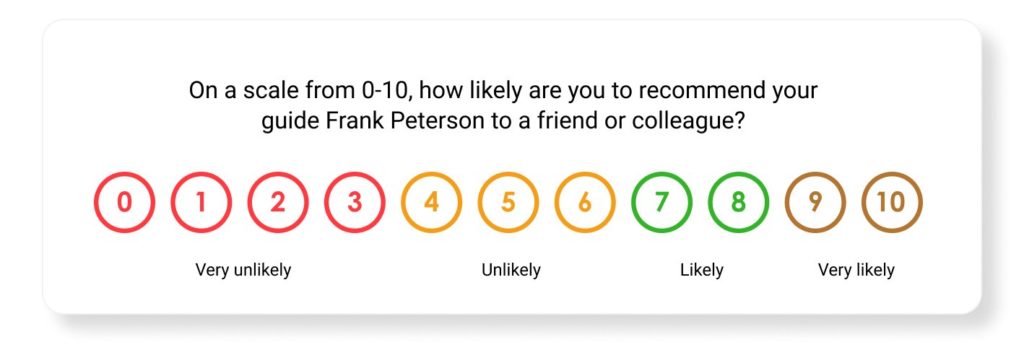
Want to see this in action? Check our LimeSurvey NPS question theme or test our NPS demo survey.
What is an NPS Survey?
Net Promoter Score (NPS) surveys ask one simple yet impactful question:
“On a scale from 0 to 10, how likely are you to recommend our product/service to a friend or colleague?”
Respondents are grouped into:
- Promoters (9–10): Loyal enthusiasts who will keep buying and refer others
- Passives (7–8): Satisfied but unenthusiastic customers
- Detractors (0–6): Unhappy customers who can damage your brand
Your NPS score is calculated as:
% of Promoters – % of Detractors
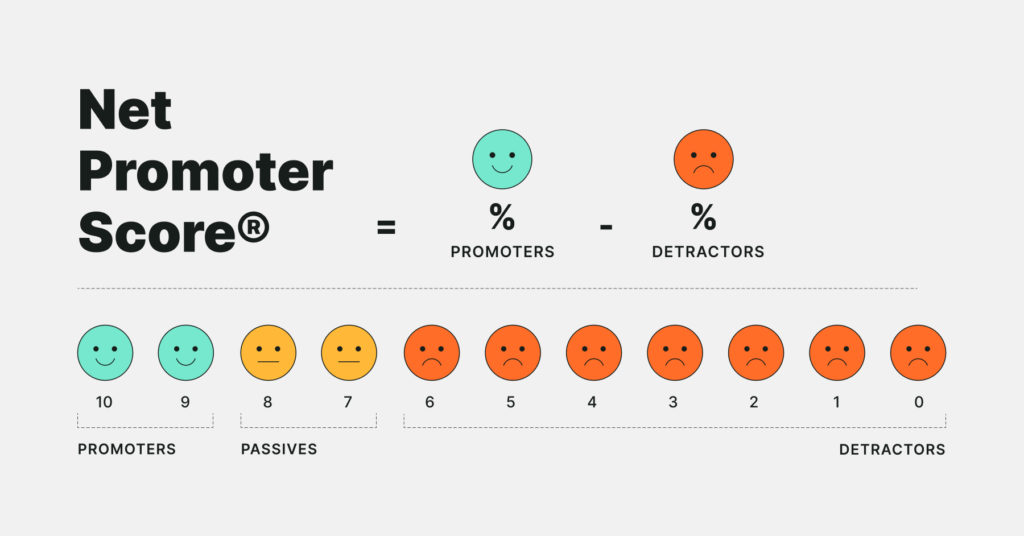
Where It’s Used:
- SaaS platforms for customer loyalty tracking
- E-commerce platforms post-purchase
- Service businesses like telecoms, banks, and travel
- Employee NPS (eNPS) to measure staff engagement
Course Evaluations
Structured feedback surveys tailored for academic and training programs—designed to gather insights from learners about course content, teaching effectiveness, delivery methods, and overall satisfaction, helping educators and institutions enhance program quality.
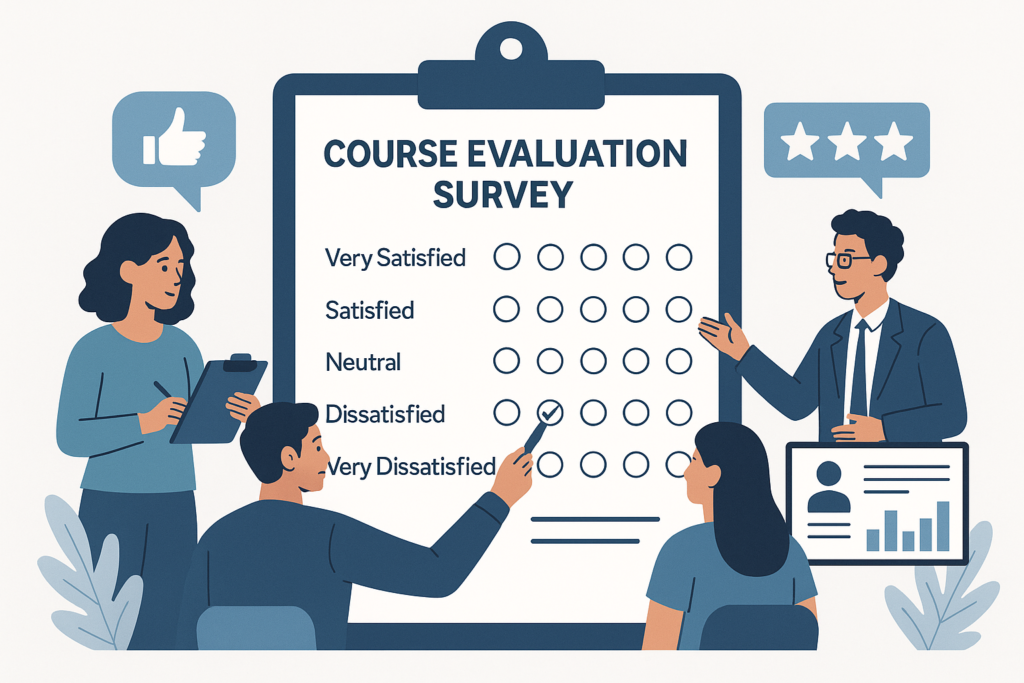
What are Course Evaluation Surveys?
Course evaluations are systematic feedback tools that allow students or participants to share their opinions on how effective and engaging a course was. These surveys are usually conducted at the end of a course or training module and include both quantitative (rating scales) and qualitative (open-ended) questions.
Where They’re Used:
- Universities and colleges to evaluate professors and course delivery
- Online training platforms to collect feedback from learners
- Corporate training programs to improve future sessions
- Professional workshops and skill development courses
- Certification bodies to measure course clarity and structure
How We Build Smarter Course Evaluations
- We have developed several evaluation frameworks for evaluating lessons at schools or evaluating seminars our lectures at universites
- We have tools developed to automatically create evaluation surveys for new courses easily
- There are also custom overviews of evaluation surveys including core scores
- In additiona to that, custom coded reports which can get emailed to the teachers automatically we developed.
Need help with your survey type → We can help
360° Feedback Surveys
Comprehensive multi-rater feedback tool used to evaluate employee performance from multiple perspectives—supervisors, peers, subordinates, and even self-assessments—for better professional growth and organizational development.
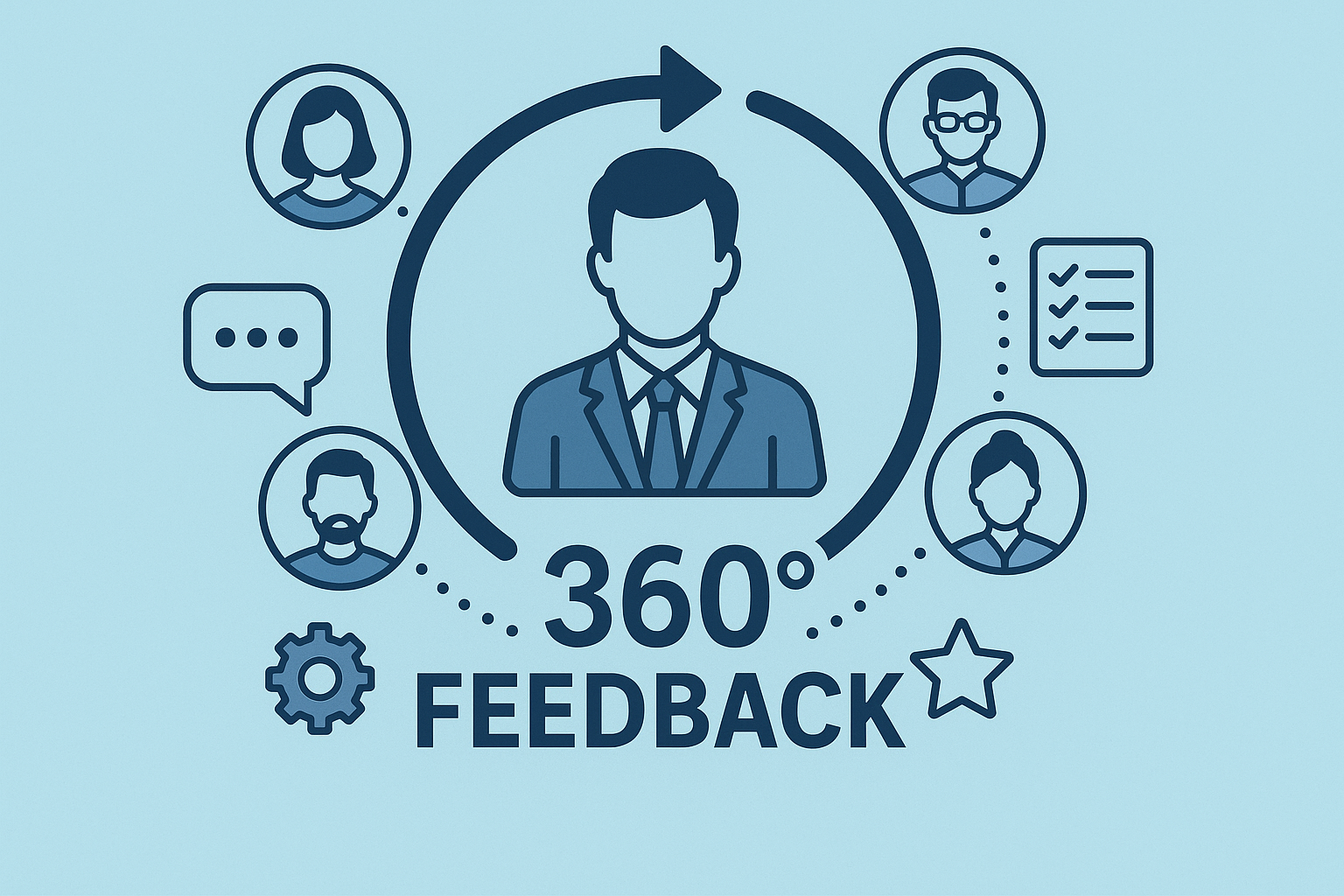
What is a 360° Feedback Survey?
360° Feedback Surveys are structured tools that gather performance feedback on an individual from various stakeholders—managers, colleagues, direct reports, and sometimes clients. These surveys help uncover blind spots, recognize strengths, and identify areas for improvement.
Where It’s Used:
- Performance appraisals in corporate HR
- Leadership development programs
- Coaching and mentoring initiatives
- Employee training needs assessments
We have created a wide range of custom coded reporting dashboards:


Psychological Tests
Scientific questionnaires designed to assess mental and emotional traits using validated psychological scales—implemented with conditional logic, branching scenarios, and built-in scoring systems to deliver personalized insights for research, clinical use, and talent assessment.
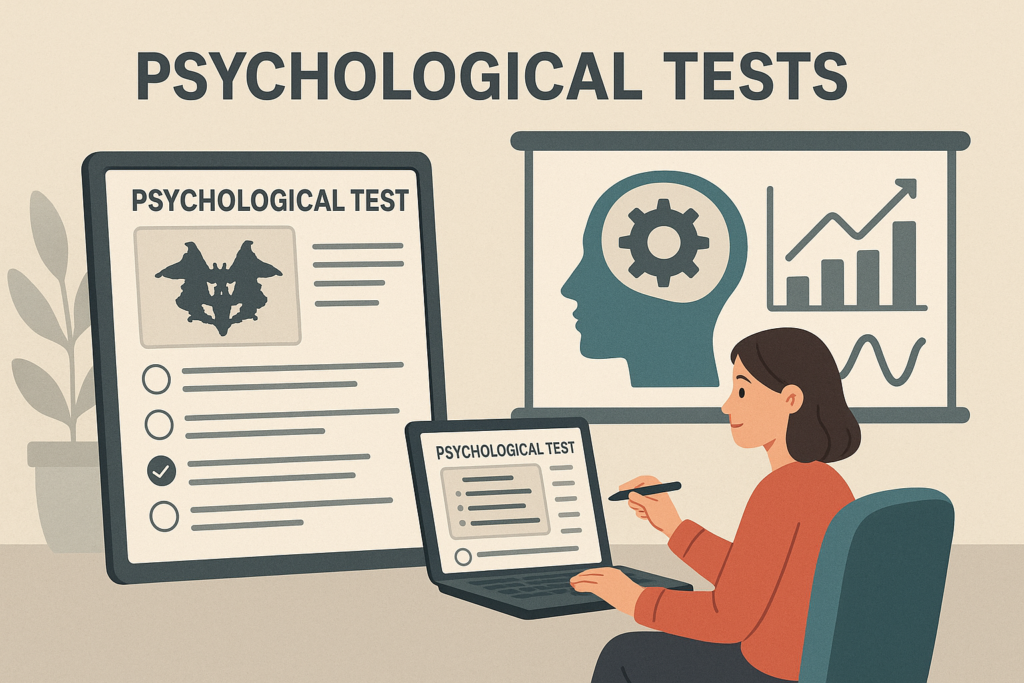
What are Psychological Tests Surveys?
These surveys are based on standardized psychological instruments and are used to measure a wide range of mental and emotional attributes. Whether for research, therapy, or talent evaluation, psychological tests help professionals gain deeper insights into an individual’s thought processes, emotional well-being, and behavior.
Where They’re Used:
- Mental health clinics for diagnosing anxiety, depression, or stress levels
- Schools and universities to assess cognitive and emotional development
- HR departments to evaluate personality fit during recruitment
- Academic research in behavioral sciences
- Therapy and counseling programs for progress tracking
Online Exams and Tests
Timed assessments designed for academic, certification, or recruitment purposes—equipped with automatic scoring, randomization, and question logic to ensure fairness, accuracy, and a smooth testing experience for students and examinees.
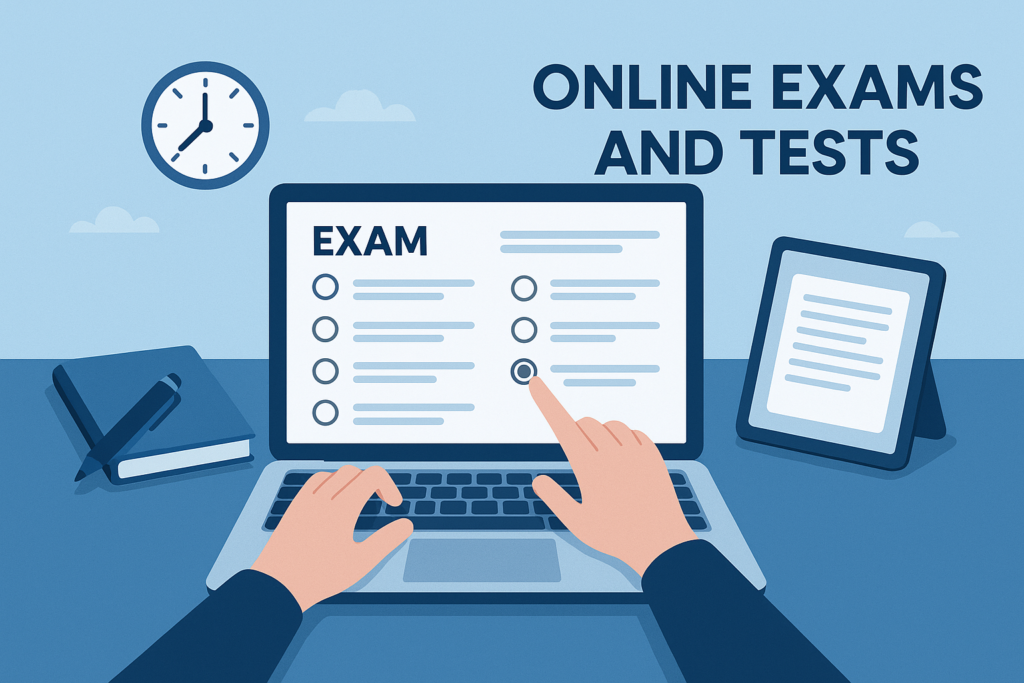
What are Online Exams and Tests?
These are digital assessments administered through a web interface, often under strict time limits, with structured question banks and real-time scoring. They can include multiple-choice, short-answer, matching, and numerical questions—tailored for schools, colleges, training centers, and corporate evaluations.
Where They’re Used:
- Educational institutions for semester exams or practice quizzes
- Recruitment agencies for candidate screening
- Corporate training programs to test skill retention
- Certification courses for online learning platforms
- Self-assessment tests for learners and job seekers
Complex Medical Surveys
Comprehensive and methodologically rigorous surveys designed for in-depth medical research, public health monitoring, and policy-making—often involving large-scale data collection over time to track health trends, disease prevalence, and the impact of interventions.
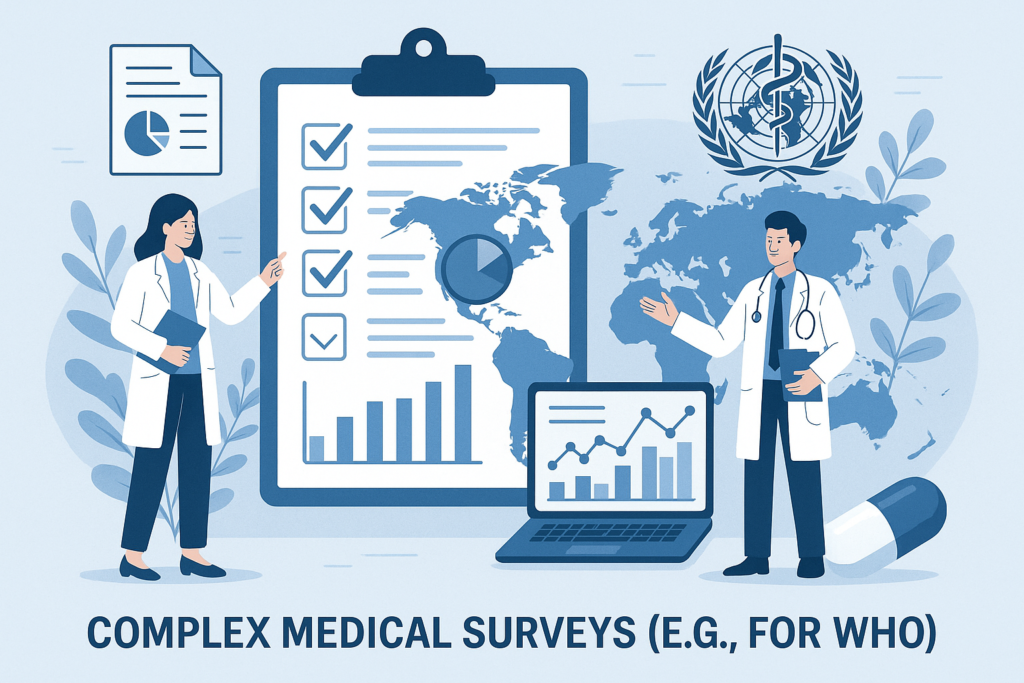
What are Complex Medical Surveys?
These surveys are used in large-scale health research programs, often supported by global health organizations like the World Health Organization (WHO) or national health ministries. They may include epidemiological studies, clinical data collection, patient-reported outcomes, and longitudinal tracking over months or years.
Where They’re Used:
- Global health monitoring (e.g., mental health, chronic disease prevalence)
- COVID-19 and infectious disease impact tracking
- Health behavior surveys in rural or urban populations
- Multi-phase clinical research projects
- WHO-sponsored studies to evaluate national health systems
Medical Longitudinal Studies
Long-term medical surveys conducted over extended periods to observe changes in health, behavior, or disease progression—essential for identifying patterns, understanding chronic conditions, and supporting evidence-based healthcare decisions.

What are Medical Longitudinal Studies?
These studies involve tracking the same individuals or patient groups over months, years, or even decades. The goal is to understand how health outcomes evolve over time and how various factors—like lifestyle, environment, or treatment—impact those outcomes. These surveys require consistent, repeated data collection and high methodological accuracy.
Where They’re Used:
- Chronic disease research (e.g., diabetes, hypertension, cancer)
- Mental health and behavioral studies
- Developmental and aging studies
- Monitoring treatment effectiveness over time
- Public health policy development
Customer Satisfaction Surveys (CSAT)
A focused and easy-to-deploy survey used to measure customer satisfaction after a specific interaction, purchase, or service—giving immediate, actionable feedback that helps improve products, enhance support quality, and boost overall customer experience.
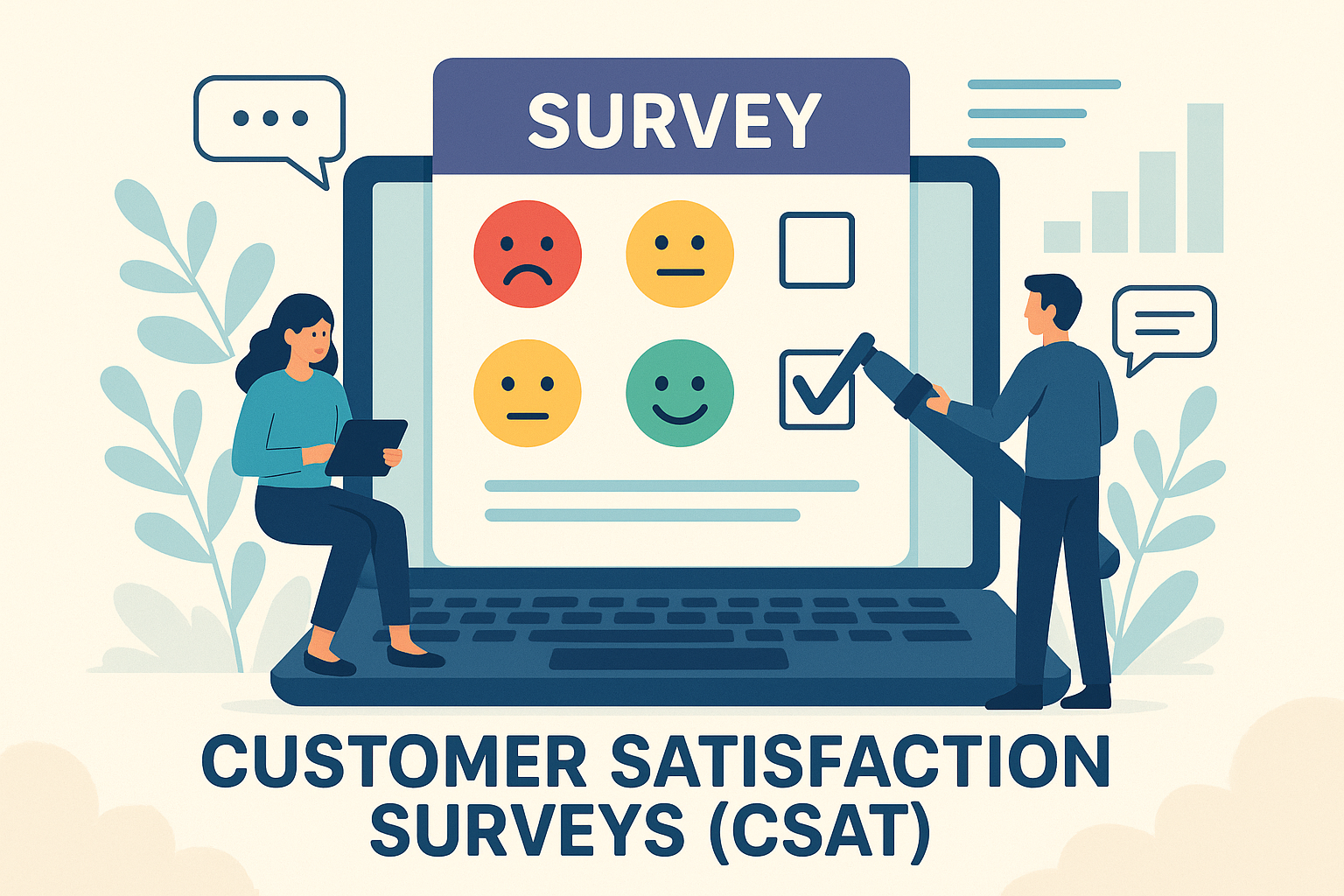
What is a CSAT Survey?
Customer Satisfaction Surveys (CSAT) are designed to assess how happy your customers are with a specific interaction or overall experience. These are typically short, with questions rated on a scale (e.g., 1 to 5 or 1 to 10), and are used right after customer support chats, product purchases, or service delivery.
Where It’s Used:
- Post-purchase product feedback
- After customer support interactions
- To evaluate service quality in hotels, clinics, or e-commerce
- Ongoing monitoring of product satisfaction
Whether you need employee assessments, feedback tools, or academic studies, we can help you build the right LimeSurvey survey types tailored to your goals.
Let’s discuss how we can build a solution that’s as unique as your project.
